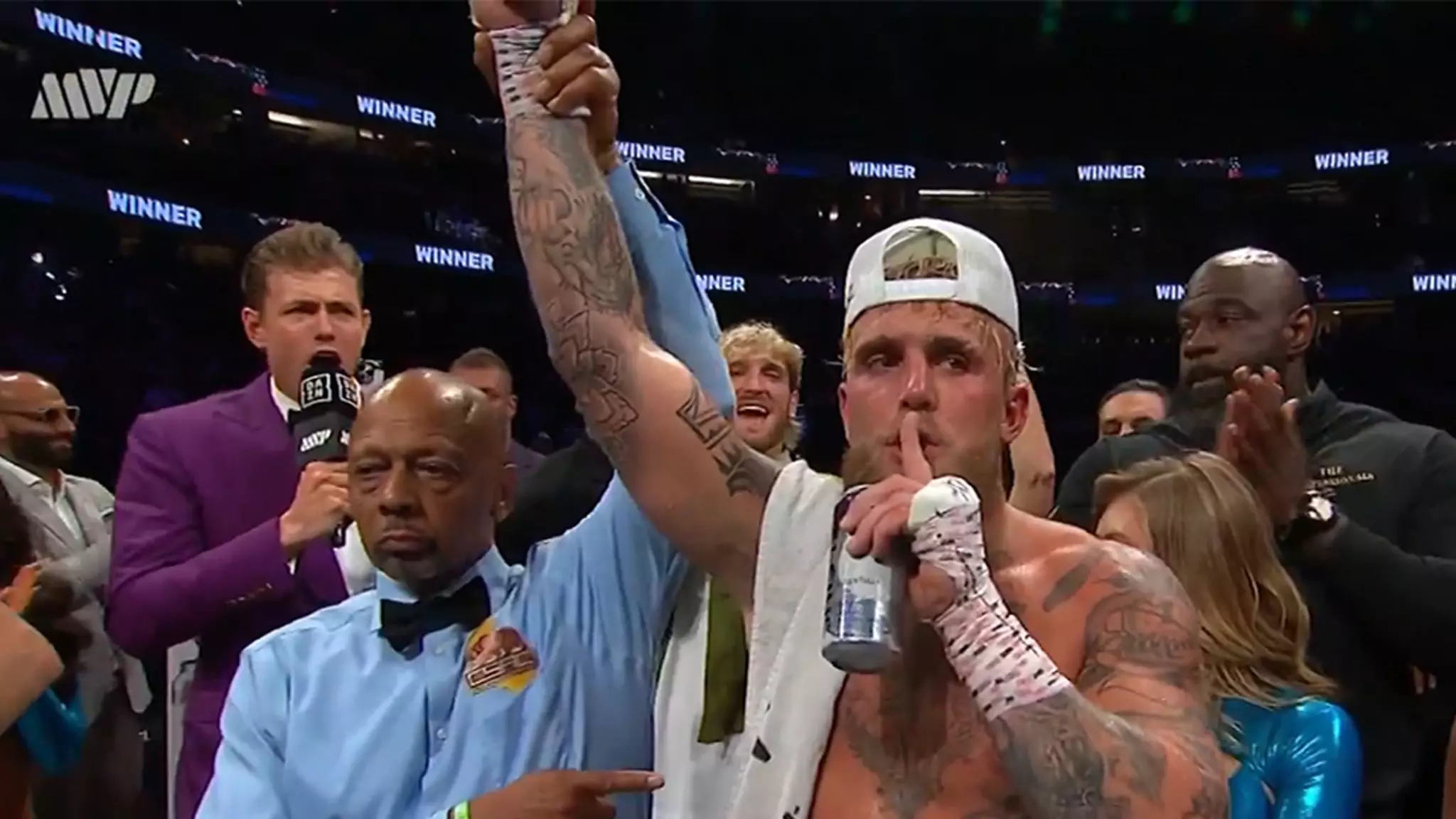Jake Paul’s recent unanimous decision victory over Julio Cesar Chavez Jr. was another clear indicator of the evolving landscape in boxing, where unorthodox entrants like Paul exploit declining veterans who once reigned supreme. Chavez Jr., a former WBC middleweight champion famed for his aggressive style, came into this fight amid loud support from a predominantly pro-Mexican crowd at Anaheim’s Honda Center. Yet, the excitement many anticipated failed to materialize as the 39-year-old’s sluggish approach starkly contrasted with Paul’s youthful aggression and precision. For the majority of the early rounds, Chavez Jr. appeared hesitant and passive, barely throwing punches and essentially ceding control to the 28-year-old Paul.
The enthusiasm of the crowd faded quickly, turning to displeasure as their hero showed little urgency or engagement. This lack of intensity wasn’t just a product of ring rust or strategic conservatism—it reflected underlying physical and perhaps mental decline. Announcers went so far as to criticize Chavez Jr. for his visible complaints to the referee rather than competitive commitment, signaling a fighter not fully invested in the moment. Paul capitalized on this passivity with disciplined offense and defensive savvy, accumulating points and steadily wearing down his opponent. Despite some frustration over uncalled fouls for alleged low blows and hits to the back of the head, Chavez Jr.’s inability to adapt effectively undermined his case for victory.
A Temporary Resurgence Can’t Mask a Career’s Ebb
It wasn’t until the sixth round that Chavez Jr. briefly emerged from his dormancy, landing crisp shots that momentarily shifted momentum. This revival suggested that the veteran still possessed remnants of his former skill and power, forcing Paul into clinches and defensive exchanges. However, this spark was fleeting; Chavez came on strong in the closing rounds, yet the damage accumulated earlier proved insurmountable. The bout’s statistics underline this narrative: Chavez landed just over 60 punches across 10 rounds, the bulk arriving in the final third of the fight. While this late push gave the audience something to cheer for, it wasn’t enough to influence the judges who clearly favored Paul.
This late resurgence, while notable, felt more like a desperate measure than a genuine challenge. Chavez Jr.’s declining stamina and ring presence were glaring, and the once-legendary puncher seemed overwhelmed by the consistent pressure and youthful vigor Paul maintained. The veteran opponent’s inability to maintain pace or control over the fight demonstrated a fighter on his last legs—more outmatched emotionally and physically than tactically outboxed.
Paul’s Growing Influence and Future Challenges
Jake Paul’s victory not only marks his 12th win but cements his growing reputation as a disruptive force blending boxing skill with celebrity allure. His response to the jeering crowd—blunt and unapologetic—illustrates a fighter aware of his polarizing figure in the sport. What’s intriguing is Paul’s apparent savvy outside the ring: extending support to former adversary Ben Askren amid medical struggles adds a rare glimpse of empathy and responsibility often absent in flashy fighters.
Looking ahead, Paul’s name-dropping of elite contenders like Anthony Joshua, Gervonta “Tank” Davis, and Tommy Fury signals ambition beyond novelty fights, although the boxing community remains skeptical of his long-term legitimacy against these seasoned pros. Regardless, Paul’s strategy of selecting faded champions or media personalities appears performing profitably, maximizing both financial gain and publicity. The key question emerges: can Paul truly transcend spectacle and become a respected competitor, or will his victories remain artifacts of matchmaking rather than merit?
In evaluating this latest contest, it’s evident that Chavez Jr.’s defeat speaks more to the pitfalls of aging fighters unable—or unwilling—to adapt, rather than Paul’s prowess alone. The future of boxing may increasingly intertwine with figures like Paul, where entertainment value and ring intelligence blur, challenging traditional definitions of what it means to be a champion.

